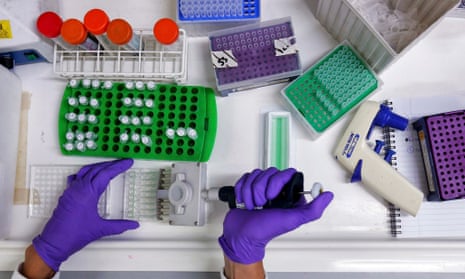It’s one of the quirks of the Abbott government’s full-frontal assault on the values of the Enlightenment that Ian Chubb, Australia’s chief scientist, has quietly emerged as one of the government’s most effective critics.
It’s not a situation Chubb might have expected when taking on the role, but the government’s disdain for such pesky notions as scientific evidence has thrust him into the spotlight. Now Chubb is effectively freelancing, making science policy for a government that has no science minister and no apparent interest in science itself.
Yesterday, Chubb released a new paper on science policy, entitled Science, Technology, Engineering and Mathematics: Australia’s Future. Revealingly, the paper is described not as a white paper or a discussion paper, but rather as an “agenda for change”.
That’s because the chief scientist’s contribution is not government policy. Indeed it couldn’t be, given this government’s antipathy to the practice and funding of science.
Our Plan: Real Solutions for All Australians, the Coalition’s 2013 pre-election policy document, contains no science policy. The word “science” itself features only three times – once in relation to fishing policy, and twice in regards to continuing the Australian Academy of Science’s Primary Connections program for primary school science education.
The plan pledges to take a “practical, balanced, and sustainable approach” to environmentalism, based on “sound scientific findings” and the needs of users. As an example, Real Solutions mentions... the fishing industry, which the government pledged to support by making marine park assessments more rigorous, in accordance “with objective scientific ... evidence”. That’s it.
We haven’t heard much about fishing since this time last year, but the government did honour its promise to continue Primary Connections, with $5m in May’s budget. It was small consolation.
The good news was drowned out by a swathe of funding cuts to science and research, including hundreds of millions slashed from the CSIRO, Australian Research Council, Cooperative Research Centres, and more.
Budget tables published by the Department of Industry yesterday revealed that funding cuts across science, research and innovation programs totalled nearly $400m this year alone, with more pain to come in the forward estimates.
No wonder Chubb is approaching his task of championing Australian science with a degree of world-weariness.
The irony of it all is that Chubb’s new plan is a model of mainstream economics. It puts economic growth at the very top of its agenda. “The end we aim to achieve is to build a stronger Australia with a competitive economy,” Chubb writes.
Science and research policy therefore becomes the means to facilitating that end. It’s as purely instrumental a policy blueprint as one could imagine.
Chubb is surely right when he claims that “Stem” – science, technology, engineering and mathematics – is “the almost universal preoccupation now shaping economic plans” globally. Other nations are racing ahead of Australia with ambitious programs of basic scientific research, married to industry-led research and development. Australia remains the OECD nation without a national science policy.
This is why Chubb thinks “it is time to do what so many other countries have already done: take a long-term strategic view of Stem’s pivotal role in securing a stronger Australia.”
There are many criticisms one could make of such a policy agenda: that it is too focused on economic growth, for instance, or that it fails to acknowledge the role serendipity plays in life-changing scientific discoveries.
But we’re not even at the stage of debating these ideas on their merits. While we have a government that effectively denies the basic science of climate change, scientists remain in the uncomfortable position of defending the basic philosophy of the scientific method.
As a result, we have the quixotic prospect of Australia’s chief scientist begging for meetings with senior cabinet ministers in an attempt to get his agenda heard.
In an interview yesterday with the ABC’s Mark Colvin, he painted a plaintive picture. “I’m going to walk it around – you know, tiptoe around the parquetry, as we say in Canberra,” Chubb said.
“I’m going to make sure that I talk to people from as many places as I can get to, to persuade them that Australia’s future depends on a well integrated, a well-resourced, but a coherent approach to support for science.”
Judging by recent developments, his progress will be lonely. This is not a government particularly interested in ideas it doesn’t already agree with. Renewable energy, for instance, is an obvious area where Australia could strategically invest – as Chubb has consistently argued.
The government is moving in the opposite direction, slashing government funding for renewable research and development and hand-picking a panel of climate sceptics to review the Renewable Energy Target.
The government is also pushing ahead with the wholesale transformation of Australia’s higher education system – the place where most basic scientific research takes place. By slashing funding for teaching and research, and completely deregulating university fees, Christopher Pyne is laying the groundwork for the rapid destruction of science faculties at many smaller universities. They will simply lack the funds to cross-subsidise money-losing operations.
The biggest problem, however, is ideological. Science in Australia is caught in a political pincer, between the government’s hostility to climate change and its desire to quickly rein in public spending. As conservatives have made climate science a front in their bitter culture war, funding for science has become an easy target.
Economic policymakers like Joe Hockey and Mathias Cormann have shown little interest in researching our way to a brighter future. Their prescription for economic growth is little more than reheated neoliberalism of the sort pedaled by right-wing think tanks: cut taxes, cut red tape, balance the budget, and the growth will come.
Chubb thinks such a haphazard approach is too risky, and that the future of Australian science cannot to be left to chance. But is anyone in the government listening?
